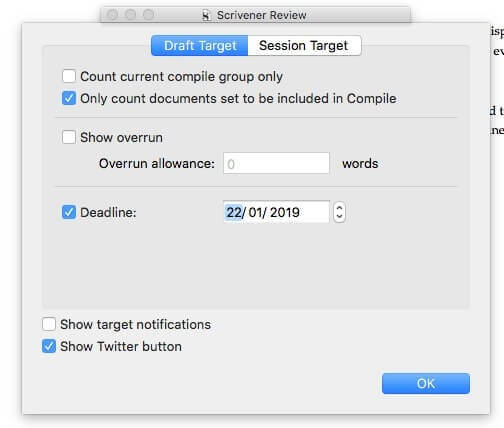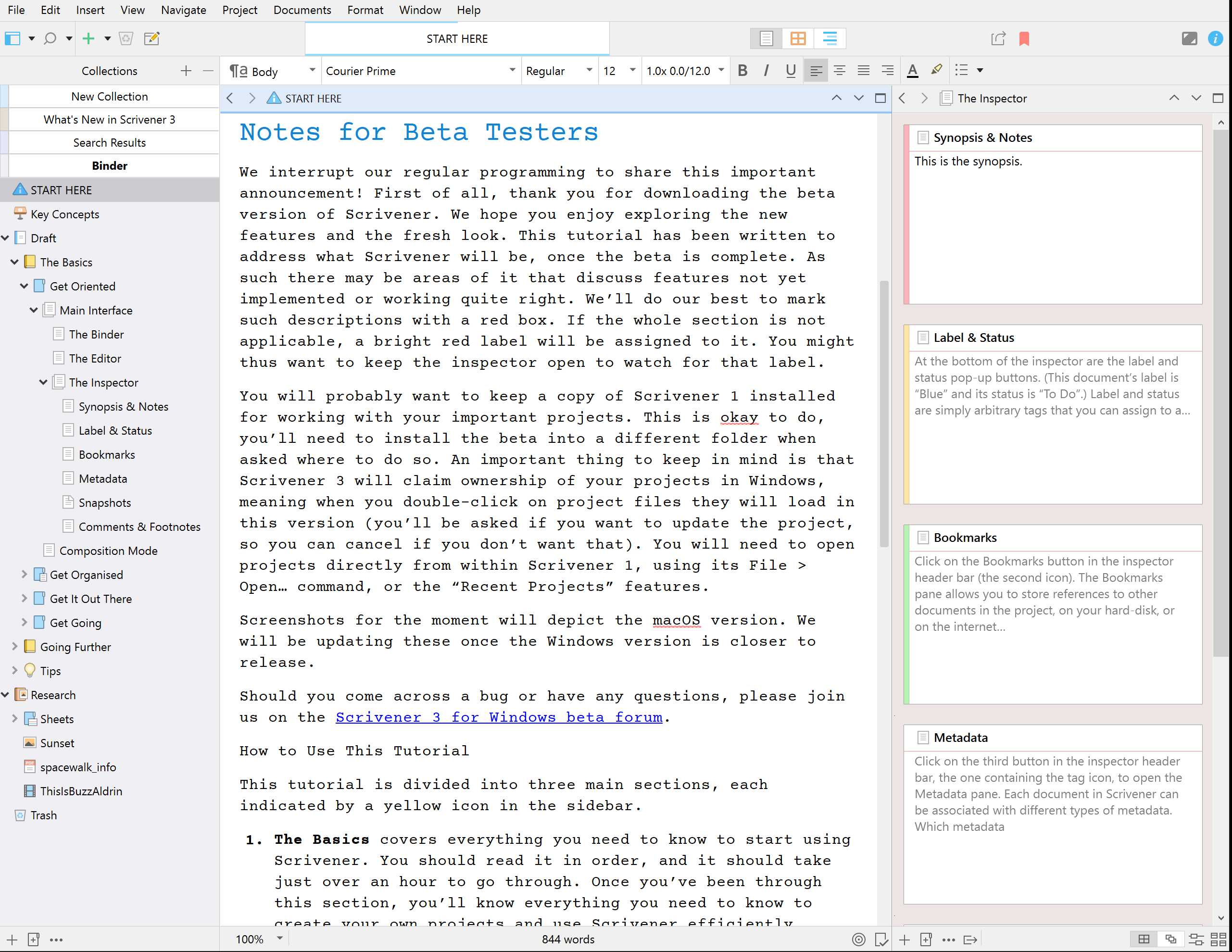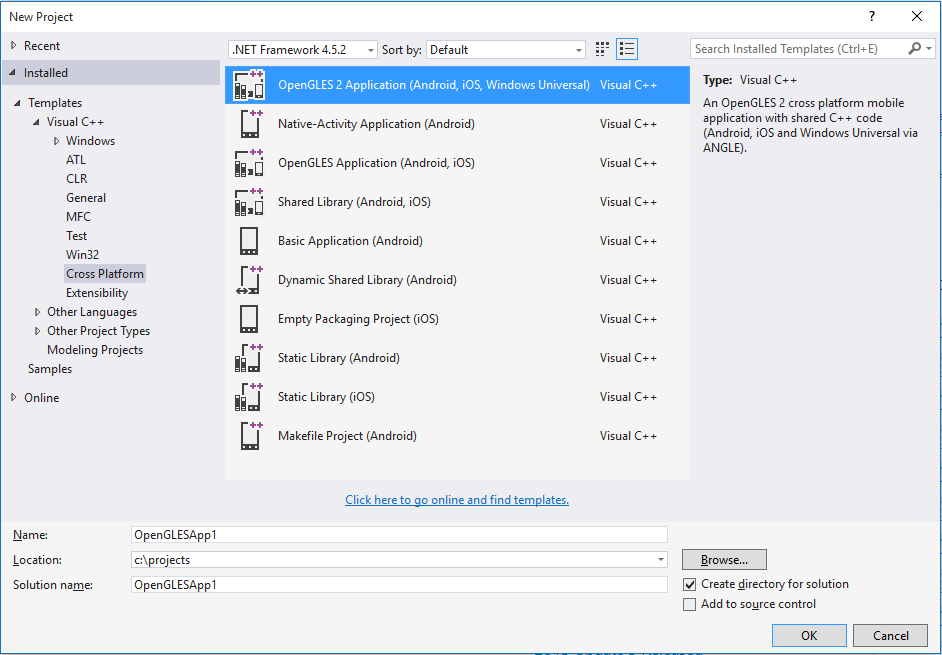
(You have now eliminated 95-99% of the submissions.)ġ1. Trouble is, it’s not the author’s, and everybody’s already seen that movie/read that book/collected that comic. Nobody but the author is ever going to care about this dull, flaccid, underperforming book.ġ0. It’s nice that the author is working on his/her problems, but the process would be better served by seeing a shrink than by writing novels.ĩ. Almost all the reading-and-thinking time will be spent on the remaining fraction.)Ĩ. (At this point, you have eliminated 60-75% of your submissions. However, the story and the manner of its telling are alike hackneyed, dull, and pointless.
#Project targets scrivener windows 8.1 keygen

Author can write passable paragraphs, and has a sufficiently functional plot that readers would notice if you shuffled the chapters into a different order. This greatly facilitates composition, but is hard on comprehension.ħ. Author has a moderate neurochemical disorder and can’t tell when he or she has changed the subject. Author can write basic sentences, but not string them together in any way that adds up to paragraphs.Ħ. Words are supplanted by their similar-sounding cousins: towed the line, deep-seeded, dire straights, nearly penultimate, incentiary, reeking havoc, hare’s breath escape, plaintiff melody, viscous/vicious, causal/casual, clamoured to her feet, a shutter went through her body, his body went ridged, empirical storm troopers, ex-patriot Englishmen, et cetera.ĥ. Confusion-of-motion problems inadvertently generate hideous images. Parts of speech are not what they should be. Author is on bad terms with the Muse of Language. Author has a serious neurochemical disorder, puts all important words into capital letters, and would type out to the margins if MSWord would let him.Ĥ. Author has submitted some variety of literature we don’t publish: poetry, religious revelation, political rant, illustrated fanfic, etc.ģ. Herewith, the rough breakdown of manuscript characteristics, from most to least obvious rejections:Ģ. There's an article from Teresa Nielsen Hayden (an editor at Tor) that lists the reasons things get rejected: Reading slush (unsolicited manuscripts of novels) is generally a terrible experience. I expect that style will be much more widespread when you can live in a suburb and a car will turn up on your doorstep five minutes after you request one - especially as you can get the car to shuttle you to a train station, allowing a single station to cover a wider area. If you live close enough to a city centre (I do) then you can choose not to own a car, use one of the on-line short-term rentals (car club, zipcar, etc) when you want to make a journey for which public transport isn't good, and use public transport when that is available. If you don't own a car, you're paying the capital costs amortised across each journey, the same as public transport - so they can compete on a journey-by-journey basis, and public transport is usually cheaper per mile. Once you own one, using it for a journey is usually cheaper/better than using public transport. At the moment, if you need a car at all, you pretty much have to own one. Shifting to a renting model makes the prices more comparable to public transport, which might result in some commuters shifting to public transport.


Peak-time commuting will be quite expensive. Non-peak car travel will be cheaper, because the cars will be available. Every retired person who still has a car, that goes - they rarely travel in the peak, so when they need a car, there will be plenty available. At the moment, those cars are sitting parked outside that person's house with automated shared-cars, they just won't have one come and pick them up.īut all the other cars, the ones that aren't used in the peaks in the first place, all of those disappear.

The other 10% represents people who are off-sick, on holiday, working from home, etc on a particular day. It's difficult to shorten long-distance, high-speed services for technical reasons, so they tend to sell off the spare tickets cheap - that's where all those cheap advance tickets come from.įor the cars, they will need enough cars to move all peak-time travellers at once, which is about 90% of the number of commuter cars currently on the roads. Most of those trains go and sit in the depot from 10am to 3/4pm and after 7pm. But people don't like travelling by train if the last train is 7pm (they get worried about being trapped) so train operators need to run services until 11pm or so.įor commuter trains, they tend to run units in multiple in the peaks, and in single outside the peaks, so half the carriages sit idle outside the peaks. Funnily enough, this is already a solved problemĪ lot more people want to travel during the peaks than in the middle of the day or in the evenings.


 0 kommentar(er)
0 kommentar(er)
